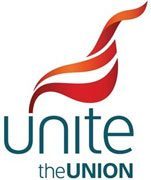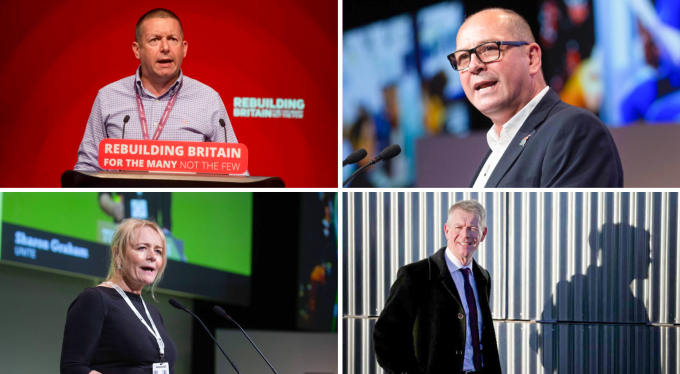At our recent Branch Meeting, Unite Branch Member and Senior Lecturer in Politics Matthew Johnson endorsed Howard Beckett for General Secretary. Here he explains some of his reasons for the endorsement and shares his thoughts on the election now that nominations have closed.
I was extremely proud to speak in support of Howard Beckett and even prouder to hear that our branch had nominated him for General Secretary. This is a pivotal election and one that has been misunderstood. The trade union movement needs both to understand how to maximise workers’ interests within the law as it currently stands and to secure Parliamentary representation to reform the law to advance those interests further. For the past few decades, other large unions have been content to focus on the first point, representing their members without ever demanding fundamental change from the politicians they fund in Labour.
In effect, too many unions have used their political funds and political power within the Labour Party simply to write blank cheques to politicians who have shown little or no commitment to reversing anti-union legislation implemented by the Tories over the past four decades. That is totally self-defeating. Being a ‘non-political’ union ensures that there is no organised voice in Parliament for workers. The consequence of that is that careerist Labour politicians feel no pressure to uphold workers’ interests and, in turn, workers feel no reason to vote Labour. That effect was apparent in Hartlepool, with a Labour leadership committed to the status quo and patronising Northerners with flag waving and beer drinking achieving a mind-boggling loss of support that leaves them second favourites in the forthcoming By Election in Batley and Spen.
The only way that workers’ interests will be promoted is by pressuring and transforming the Labour Party, including by withholding funds. The Labour leadership is the definition of incompetence and arrogance and should be challenged by unions. That other affiliated unions are not opposed is because there is a revolving door between their positions of leadership and positions within the Labour leadership. We need a counter-balance that is actively committed to ending that.
Of the four candidates, Howard Beckett is the only one so far to oppose Labour’s current direction. He has been described as ‘Starmer’s nightmare’ and he is the only one explicitly committed to using Unite’s enormous financial and political clout to secure a voice in Parliament. Using that clout to kick the Leadership into supporting policies popular enough to regain support among workers, particularly in the North, is the only way that we can achieve any meaningful, long-term security for workers. That is important for all Unite members to understand, including for those who do not vote Labour.
Since our nomination meeting, the ‘centre-right’ candidate, Gerard Coyne has reached the nomination threshold. This creates a dilemma for the three candidates, including Howard Beckett, who have presented themselves as ‘left’ candidates. If all three stand, Coyne may win, even though he had the lowest number of nominations.
Discussions are currently ongoing between the three to determine whether one candidate can be endorsed to stand against Coyne. As the candidate who received the lowest number of nominations among the three, Howard Beckett has been called upon by supporters of Steve Turner, in particular, to stand down. While this seems to make sense, there are reasons for caution and reasons to continue to support the Beckett campaign.
With generally low turnouts in union elections between candidates regarded as status quo, and little or no relation between number of nominations and ability to attract individual votes, it may be that a campaign for change, such as Beckett’s, may actually attract participation of those who would otherwise not bother voting. This is one reason the Labour Leadership fear a repeat of Corbyn’s 2015 Labour Leadership Election victory in this case. Beckett has the ability to attract those members who understand the importance of having a political union and that may raise participation significantly. In a four-horse race between members, not branches, Beckett may stand a better chance of winning outright than Turner or Graham. Of the four, Beckett now has arguably the highest public profile, including as a result of Labour right wingers trying to discredit his campaign. Conversely, despite his supporters calling for Graham and Beckett to stand down, having all three stand may actually increase the chances of Steve Turner’s success, since many who would support Coyne in a two horse race, may lend their vote to Turner to keep out Beckett as the agent of change.
On the other hand, even if two candidates do agree to support a single ‘left’ candidate, a two-horse race can enhance the prospects of the candidate with lower preliminary support, in this case Coyne. Those who disagree with the leading candidate lend their vote to the opponent, irrespective of the opponent’s qualities, while those who might otherwise not vote can be motivated to vote against a candidate that polarises opinion. The forthcoming French Presidential run offs look likely to pit an Establishment candidate, Macron, against a Far-Right candidate, Le Pen, with polling suggesting that Le Pen will come extremely close to taking the Presidency. As such, coalescing around a single candidate may increase the chances of Coyne’s success. As such, there are no easy answers.
For those of us who support Beckett, the notion that he should back out to support Turner would be much more persuasive if Turner accepted the need of unions for a strong Westminster voice, challenged Starmer, and had a clear political strategy to push Labour to support workers. Then a clear line could be drawn between him and Coyne. As things stand, his position in supporting Starmer and the current direction of Labour means that potential supporters may fear that the distinctive role of Unite will be lost if he wins.
The only way to maximise the interests of workers, then, is to continue to support Howard Beckett’s candidacy in case of a four-horse race and in the hope that, in a two-horse race, Turner adopts Beckett’s positions on the need for Unite to be a political union. I hope that you will join me in doing that.
You can find out more about our nomination meeting from our previous post and full information and updates on the election on the national website.

